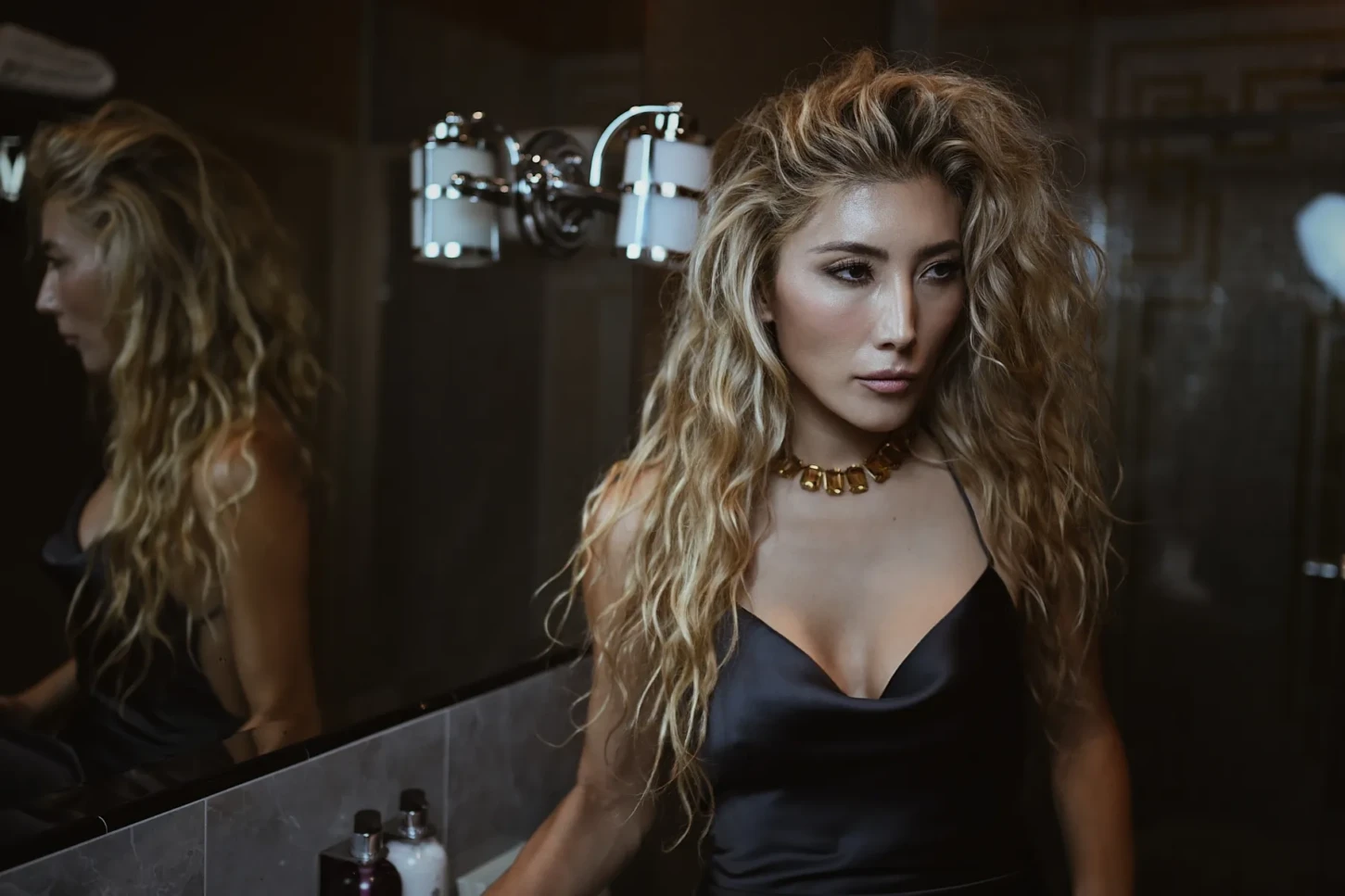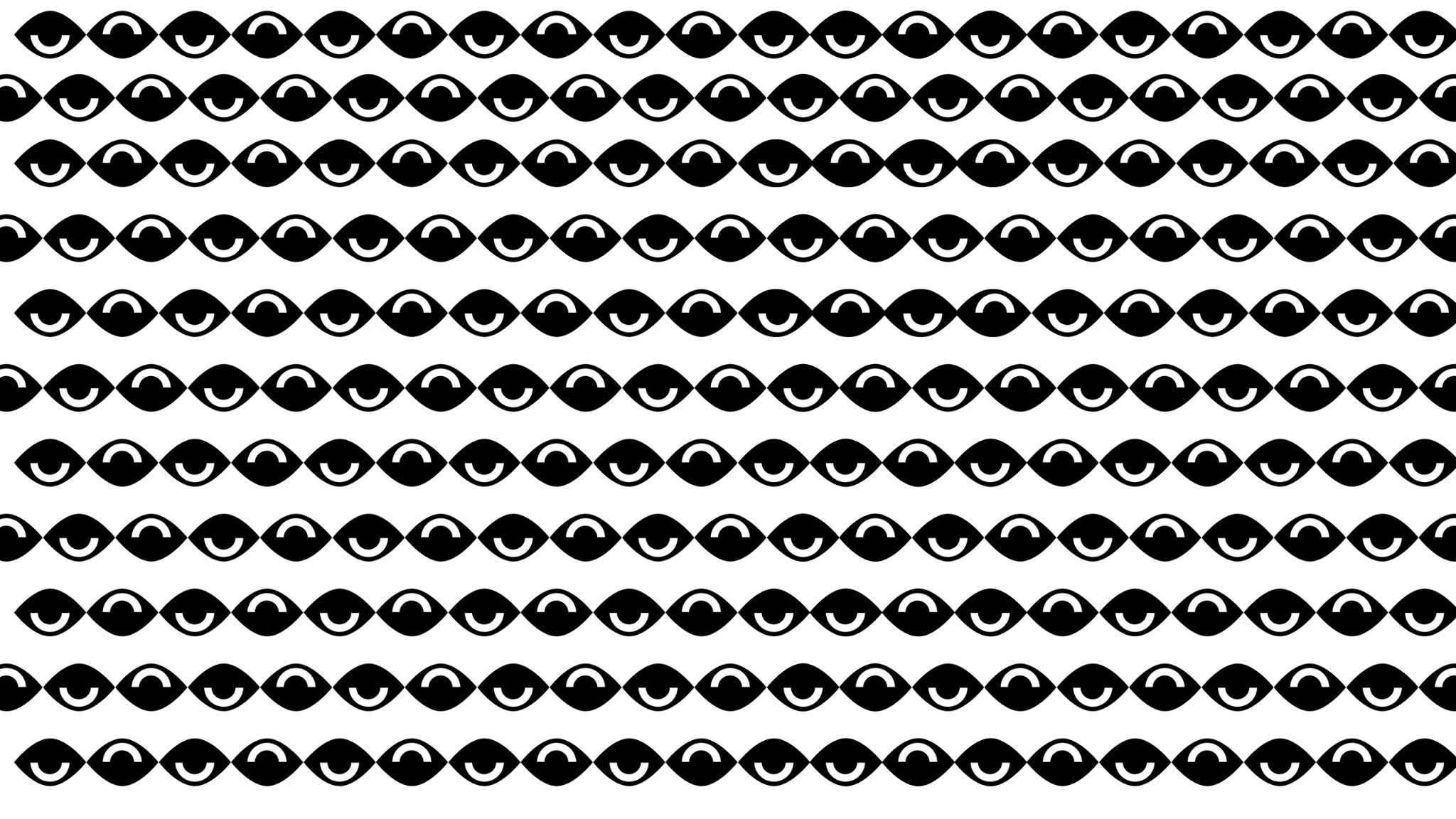Many people in Poland first discovered you in „Severance”, but your career is so much richer than one role. How would you describe your evolution as an actress?
I think my career has been a series of different leaps. Sometimes careful, sometimes just blind. I started in Australia, working on a show called „Neighbours”, and at the time I couldn’t have imagined where it would lead. Each role I’ve taken has taught me something new, whether it’s a Sci-Fi epic like „Altered Carbon” or a grounded crime drama like „Animal Kingdom”. I’ve grown more fearless overtime. Becoming a mother has helped with the fearless part. Something I didn’t expect. I’m more willing to explore different things and characters who exist in that grey area between strength and fragility.
You were born in Nepal, grew up in Australia, and now work in the US. How has this cultural mosaic influenced your art and your worldview?
Growing up in a developing country, and having the contrast of moving to the west has shaped so much. The duality of evolving between two cultures gave me this sense of being an outsider and an observer, which I think naturally feeds into acting. It taught me to adapt quickly, to listen more than I speak, and to understand that identity can be fluid. In my work, I think that’s why I gravitate towards characters who are in between worlds… People navigating fractured, identities, or extraordinary circumstances.
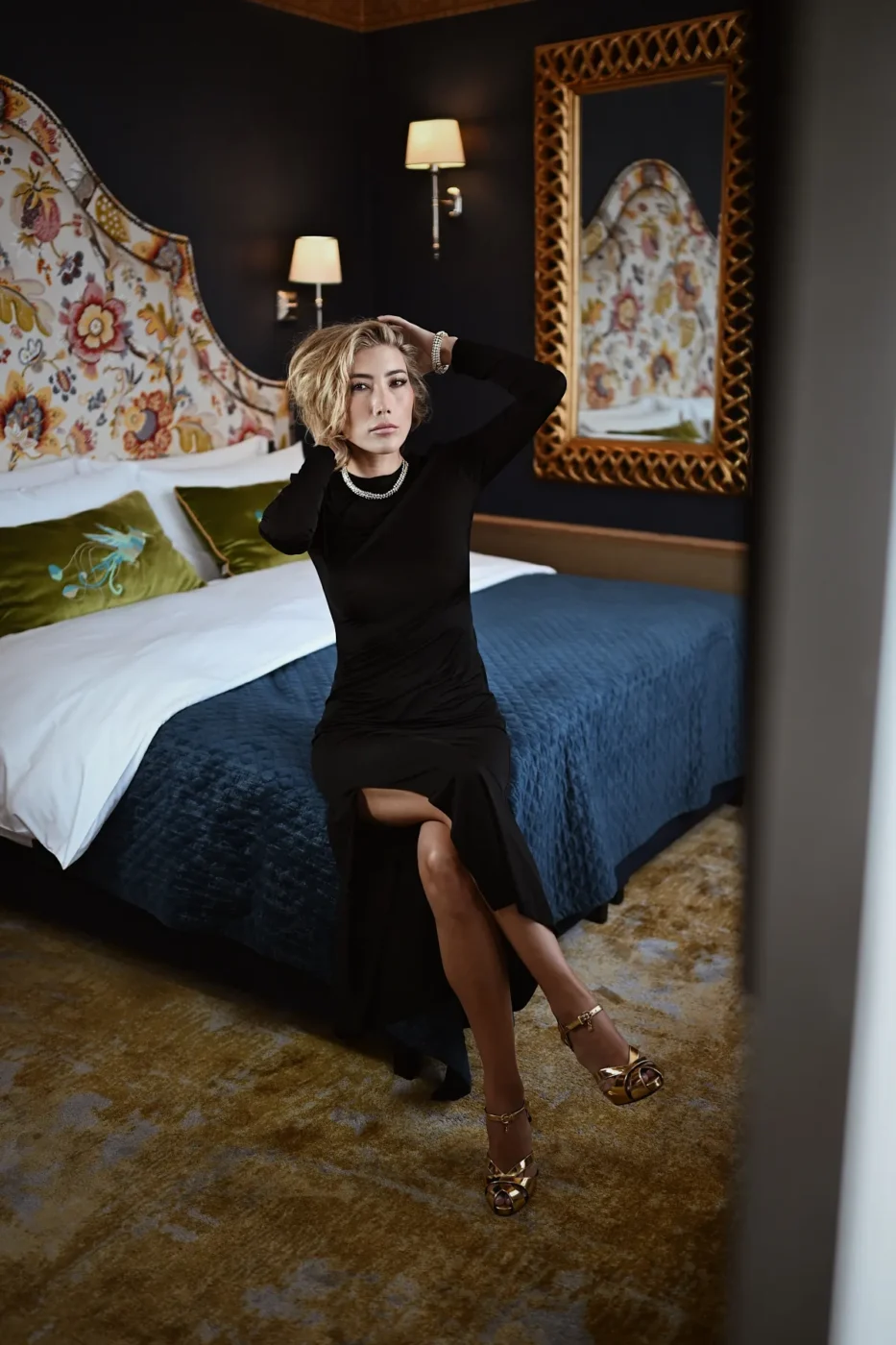
„Severance” has been called one of the most hauntingly accurate series about modern work culture. What drew you to the role of Ms. Casey?
Yes. Ms Casey is a woman with almost no memory of her life, yet she has this ache in her, this unspoken longing. That required me to lean into silence. To let pauses, breaths, and the smallest gestures carry the weight. It’s oddly exhausting, because you’re holding so much back while still trying to let the audience feel the humanity beneath the surface.
There’s a quiet melancholy and poetry to your performance — was it emotionally challenging?
It’s often about the character, first do I understand them, my teacher said “never judge your character” so it’s not so much about that… more about can i be believable. Can I bring something unique to them? And then it can also be about the collaborators. If I know I’m working with people who take big swings whether it’s Dan Erickson and Ben Stiller on „Severance” or Laeta Kaligridis on „Altered Carbon”, I know it’ll be worth diving into even if the role is terrifying at first.
Having said that sometimes you go into something and everything is a question mark. Even your self, but you move forward because i feel like sometimes the universe is giving me what I need in that moment and I just trust it. I have met many incrediable people this way. Also made many mistakes but then in life i think all of it is important. Honestly sometimes and actually often I don’t think i know what im doing I just flow with the current.
Do you feel sci-fi as a genre gives actresses more layered, powerful roles than traditional drama?
Often, yes. Sci-Fi lets women exist outside of traditional archetypes. And because you’re often building a new world, you’re not bound by the same societal expectations you might see in a straightforward drama that freedom can lead to roles that are incredibly layered and dynamic.
How do you and your husband – who is also an actor – supports each other’s careers, especially when you both have intense schedules?
Communication is very important. We both know the demands of this industry. Long shoots, travels, unpredictability. So we make conscious efforts to stay connected, even when we’re apart. And we celebrate each other‘s wins, big and small. We also are there for each other when things don’t go our way, which is in every relationship I suppose. Having someone who truly understands the highs and lows of this profession is such a gift. It’s also very helpful because we can help each other with auditions build characters, for example.
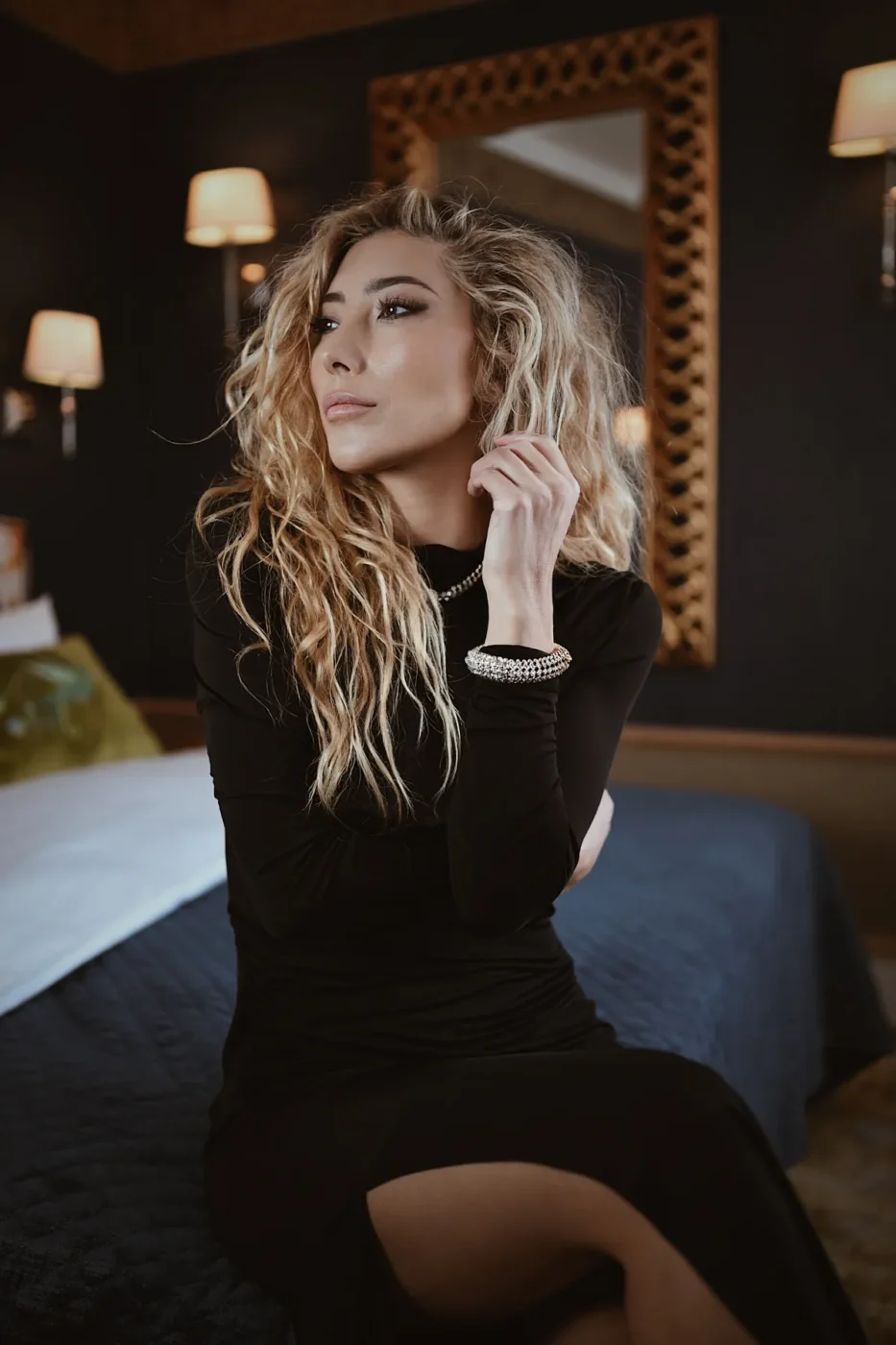
You’re also a mother — how has motherhood changed the way you approach acting or storytelling?
It’s given me a new depth of empathy. But also a fierceness. I’m not sure how to explain it. Motherhood changes your sense of time, your priorities, and even your understanding of love and fear. It’s made me more conscious about how I spend my time away from my family. I want to tell stories that resonate, that Mathilda might one day watch and feel proud of as much as possible but I also understand that I have to work to provide for her.
Fashion and visual storytelling are often tightly connected. How would you describe your relationship with style?
Style, to me, is another form of storytelling. Especially for the character. On the screen, the right wardrobe can communicate who a character is before they even speak. In my personal life, I lean towards pieces that feel effortless but expressive. Things that have a bit of edge or artistry without feeling too contrived. I love supporting designers who approach fashion in a very eccentric and organic way if that makes sense. I do love to be comfortable and stylish, which is sometimes a hard balance. I love mixing thrift clothes with Heully crafted items and also I am guilty of a bit of fast fashion.
If a Polish reader has never seen your work before, which one role would you tell them to watch first — and why?
I would probably say „Severance” to start, because it’s such a unique series and a role that I’ve done that is unlike any that I have played. But if they want to see something completely different, I’d point them toward „Altered Carbon”. It’s bold, stylish, and I get to play a very different kind of character. It’s also very beautiful beautifully made.
What are you currently working on and what exciting projects do you have coming up in the future?
I just finished a horror movie that I did with Blumhouse Productions for Universal. And there are some things that I can’t talk about beyond that. I’m also slowly developing a few projects of my own, stories. I want to help bring to life, but those things take a very long time. I’m just very excited that „Severance” has been recognized for being such an extraordinary show and everyone’s hard work is being acknowledged.
Wielu ludzi w Polsce po raz pierwszy odkryło Cię dzięki „Severance”, ale Twoja kariera to coś znacznie więcej niż tylko ta jedna rola. Jak opisałabyś swoją ewolucję jako aktorka?
Myślę, że moja kariera to seria różnych skoków – czasem ostrożnych, a czasem kompletnie na oślep. Zaczynałam w Australii, w serialu „Neighbours” i wtedy nie miałam pojęcia, dokąd mnie to zaprowadzi. Każda rola czegoś mnie nauczyła – czy to była epicka science fiction jak „Altered Carbon”, czy bardziej osadzony w rzeczywistości dramat kryminalny jak „Animal Kingdom”. Z czasem stałam się odważniejsza. Pomogło w tym także macierzyństwo – co zresztą mnie samą zaskoczyło. Jestem teraz bardziej otwarta na eksplorowanie różnych tematów i postaci, które balansują gdzieś między siłą a kruchością.
Urodziłaś się w Nepalu, dorastałaś w Australii, a teraz pracujesz w Stanach Zjednoczonych. Jak ta kulturowa mozaika wpłynęła na Twoją sztukę i sposób patrzenia na świat?
Dorastanie w kraju rozwijającym się, a potem zetknięcie się z Zachodem bardzo mnie ukształtowało. To życie na styku dwóch kultur dało mi poczucie bycia outsiderką i obserwatorką — co moim zdaniem bardzo naturalnie przekłada się na aktorstwo. Nauczyło mnie szybkiej adaptacji, słuchania zamiast mówienia i zrozumienia, że tożsamość może być czymś płynnym. Myślę, że właśnie dlatego w mojej pracy przyciągają mnie postaci funkcjonujące pomiędzy światami. Ludzie z porozbijaną tożsamością albo ci, którzy mierzą się z nadzwyczajnymi sytuacjami.
„Severance” nazywane jest jednym z najbardziej przejmujących i trafnych seriali o współczesnej kulturze pracy. Co przyciągnęło Cię do roli pani Casey?
Tak. Pani Casey to kobieta, która niemal nie ma wspomnień ze swojego życia, a mimo to nosi w sobie jakiś ból, niewypowiedzianą tęsknotę. To wymagało ode mnie zanurzenia się w ciszy… pozwolenia, by pauzy, oddechy i najmniejsze gesty niosły znaczenie. To dziwnie wyczerpujące, bo trzeba wiele w sobie tłumić, a jednocześnie sprawić, by widzowie poczuli to, co kryje się pod powierzchnią – tę ukrytą ludzką stronę.
Twoja rola ma w sobie cichą melancholię i poetyckość — czy to było dla Ciebie emocjonalnie trudne?
Zaczyna się zwykle od postaci — czy ją rozumiem? Mój nauczyciel zawsze powtarzał: „nigdy nie oceniaj swojej postaci”, więc nie chodzi o to, czy jest trudna emocjonalnie, tylko czy potrafię ją zagrać w sposób wiarygodny. Czy mogę wnieść do niej coś wyjątkowego? Ważni są też ludzie, z którymi pracuję. Jeśli wiem, że to twórcy, którzy mają odwagę i nie boją się ryzykować — jak Dan Erickson i Ben Stiller przy „Severance”, czy Laeta Kalogridis przy „Altered Carbon” — to wiem, że warto się w to zanurzyć, nawet jeśli rola na początku mnie przeraża.
Zdarza się też, że wchodzisz w coś, gdzie wszystko jest jedną wielką niewiadomą — nawet ty sam. Ale idziesz dalej, bo mam wrażenie, że czasem wszechświat daje mi dokładnie to, czego w danym momencie potrzebuję. I wtedy po prostu mu ufam. Dzięki temu poznałam wielu niesamowitych ludzi. Popełniłam też wiele błędów — ale myślę, że to wszystko ma znaczenie. Szczerze mówiąc, często mam wrażenie, że nie wiem, co robię. Po prostu daję się ponieść nurtowi.
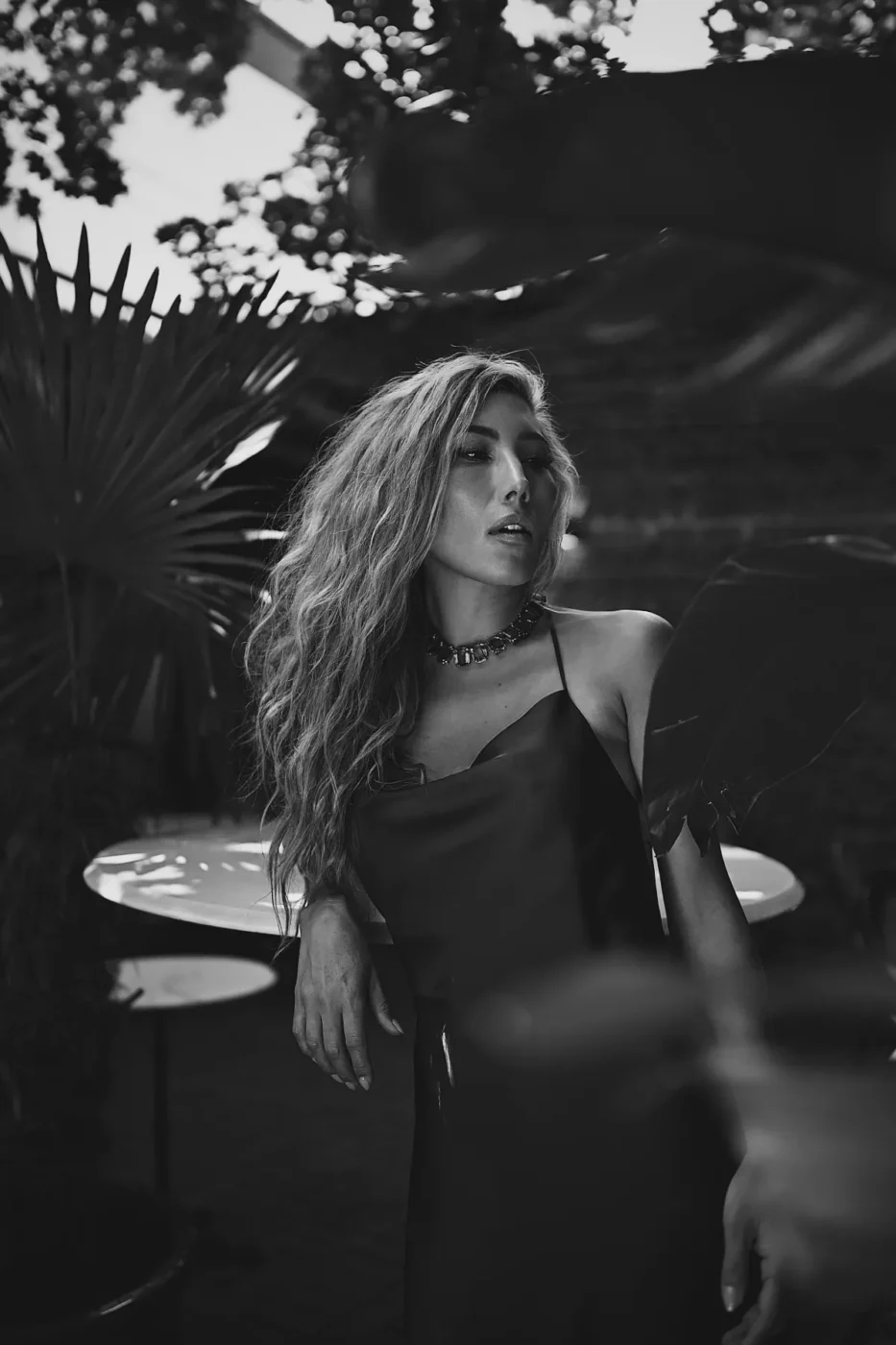
Czy uważasz, że science fiction jako gatunek daje aktorkom bardziej złożone, silniejsze role niż tradycyjne dramaty?
Często tak. Science-fiction pozwala kobietom wyjść poza tradycyjne schematy… A ponieważ często tworzy się tam zupełnie nowy świat, nie jesteś ograniczona tym, co zwykle dyktuje społeczeństwo w klasycznym dramacie. Ta wolność daje szansę na role naprawdę wielowymiarowe i dynamiczne.
Jak Ty i Twój mąż, który też jest aktorem, wspieracie się w karierach, zwłaszcza gdy oboje macie napięte grafiki?
Komunikacja jest kluczowa. Oboje znamy wymagania tego zawodu — długie zdjęcia, podróże, nieprzewidywalność. Dlatego świadomie staramy się utrzymywać kontakt, nawet gdy jesteśmy osobno. Świętujemy swoje sukcesy, te duże i te mniejsze. Wspieramy się też, gdy coś nie idzie po naszej myśli — co chyba zdarza się w każdej relacji. Mieć kogoś, kto naprawdę rozumie wzloty i upadki tej profesji, to ogromny dar. Do tego możemy sobie pomagać przy przesłuchaniach czy budowaniu postaci, co bardzo ułatwia pracę.
Jesteś też mamą — jak macierzyństwo zmieniło Twój sposób podejścia do aktorstwa czy opowiadania historii?
Dało mi to nową głębię empatii, ale też jakąś dzikość, zaciętość – trudno to opisać słowami. Macierzyństwo zmienia poczucie czasu, priorytety, a nawet to, jak rozumiesz miłość i strach. Sprawiło, że bardziej świadomie podchodzę do tego, jak spędzam czas z dala od rodziny. Chcę opowiadać historie, które będą rezonować, takie, które moja córka Mathilda kiedyś obejrzy i będzie z nich dumna, ale wiem też, że muszę pracować, żeby ją utrzymać.
Moda i wizualne opowiadanie historii często idą ze sobą w parze. Jak opisałabyś swój związek ze stylem?
Dla mnie styl to kolejna forma opowiadania historii. Zwłaszcza jeśli chodzi o postać. Na ekranie odpowiednia garderoba potrafi pokazać, kim jest bohater, zanim jeszcze otworzy usta. W życiu prywatnym wybieram rzeczy, które wyglądają swobodnie, ale są wyraziste. Coś „z pazurem” lub artystycznym sznytem, ale bez sztuczności. Uwielbiam wspierać projektantów, którzy podchodzą do mody w sposób ekscentryczny i naturalny — jeśli to ma sens. Lubię czuć się komfortowo, ale też stylowo, a to czasem trudna równowaga. Często miksuję ubrania z second handów z precyzyjnie wykonanymi rzeczami, choć nie ukrywam, że czasem ulegam też fast fashion.
Gdyby polski czytelnik nigdy wcześniej nie widział Twojej pracy, którą rolę poleciłabyś zobaczyć na początek — i dlaczego?
Pewnie powiedziałabym, żeby zacząć od „Severance”, bo to wyjątkowy serial, a moja rola tam jest zupełnie inna niż wszystkie, które do tej pory grałam. Ale jeśli ktoś chce zobaczyć coś zupełnie innego, poleciłabym „Altered Carbon”. To odważne, stylowe show, w którym gram zupełnie inną postać. Do tego jest bardzo pięknie zrobione.
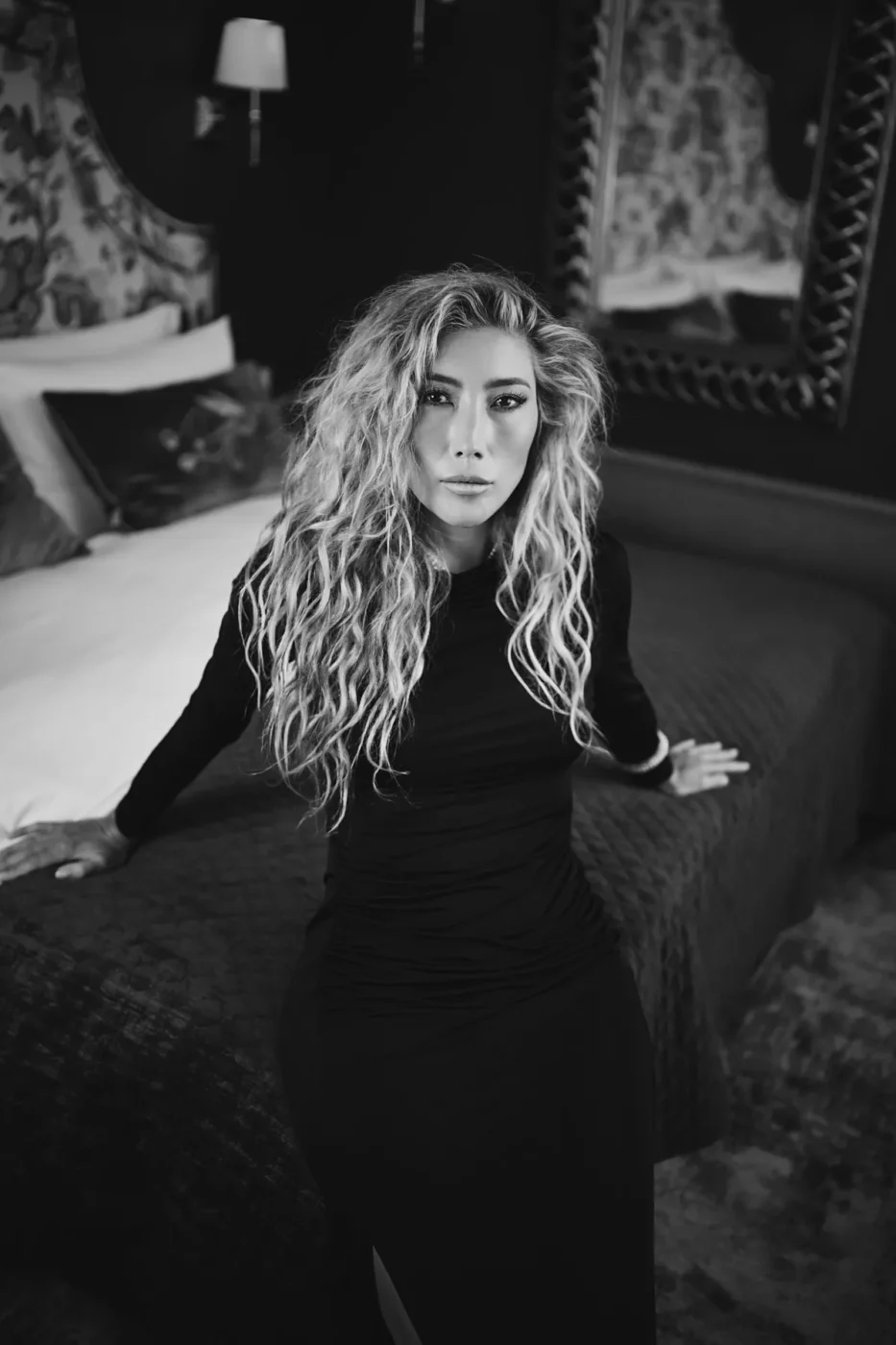
Nad czym teraz pracujesz i jakie ekscytujące projekty masz w planach na przyszłość?
Właśnie skończyłam horror produkcji Blumhouse dla Universal. Poza tym są rzeczy, o których jeszcze nie mogę mówić. Powoli pracuję też nad kilkoma własnymi projektami, historiami, które chciałabym ożywić, ale to bardzo długotrwały proces. Jestem też podekscytowana, że „Severance” zostało docenione jako wyjątkowy serial i że ciężka praca wszystkich została zauważona w tak licznych nominacjach do Emmy.
Zdjęcia: Paulina Janczak
DOP, video & wywiad: Krzysztof Malcher
Stylista: Michał Skurski
Za pomoc w realizacji sesji dziękujemy Balthazar Hotel Kraków oraz markom Swarovski i Vanda Novak.
O perfekcyjnie wyprasowane stylizacje zadbała marka Laurastar – producent wysokiej klasy systemów do prasowania i generatorów pary.

